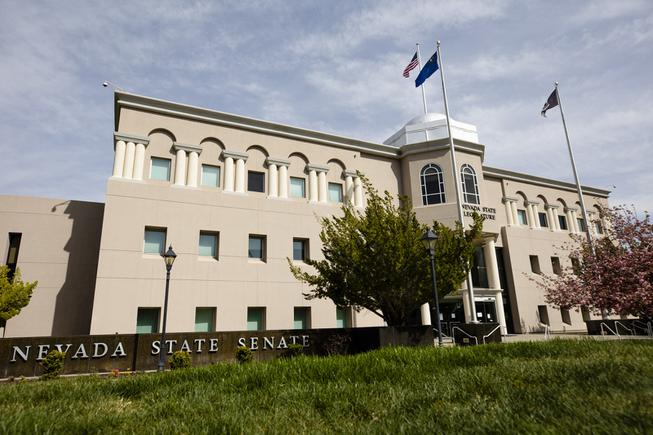Saturday, July 1, 2023 | 2 a.m.
Education-related bills introduced in the Nevada Legislature this spring that failed to become law ranged from sex education reform to attempts to continue programs that have been funded with federal pandemic relief monies. Here’s a sampling of what didn’t make the cut:
AB282: This vetoed bill would have required school districts to pay long-term, full-time substitute teachers at least $450 a month in addition to their paychecks to purchase health insurance. Lombardo rejected this with a message that said, in part: “School districts and substitute teachers would be better off if the daily rate for substitute teachers was increased. It would compensate the substitute teachers more appropriately without the added administrative burden put in place with this bill.”
AB319: This vetoed bill would have allocated $43 million over the next two years to provide universal free school lunches and breakfasts. Among other criticisms, Lombardo said universal free meals are a federal pandemic-era program that has run its course. “These funding sources are no longer available, and district officials should build programs appropriate to their needs,” he wrote in his veto. “With COVID-19 behind us, it is time to return to the normalcy of pre-pandemic operations.”
AB357: This bill would have made sex education opt-out, or given to students by default unless parents expressly say their children cannot participate. Nevada is one of only a handful of states that has opt-in sex ed. This was the fifth attempt in 10 years to make lessons on sexuality and puberty more inclusive. It passed the Assembly this year, but did not get any Senate hearings.
AB420: This bill would have allowed the eight schools in the Moapa and Virgin valleys to break away from CCSD and create the Rural Northeastern Clark County Regional School District. The valleys are between an hour and an hour and a half away from CCSD’s Las Vegas headquarters, and advocates argue that their small communities have different needs than the mostly urban CCSD. The bill did not get a hearing.
SB100: This bill would have allocated $60 million for a new elementary-middle school in Ely. White Pine County School District officials say the town’s elementary school, which was built in 1909, and its middle school, built in 1913, are too dilapidated for the small, and tapped, local tax base to ever repair or replace. The bill got only one hearing, in the waning days of the session, but no votes.
SB148: This vetoed bill would have required CCSD schools to have a minimum number of custodial, maintenance and security staff based on enrollment. It also would have required principals to select all site staff in accordance with any applicable collective bargaining agreement. “SB 148 is presumably intended to increase a school precinct’s dependence on collectively bargained staff by eliminating those precincts’ ability to contract those services to approved District vendors,” Lombardo wrote in his veto message. “It is already a time-consuming process to complete important maintenance tasks in certain school districts. This bill would further increase delays, potentially requiring schools to wait years for basic services to be improved.”
SB158: This bill, the third such attempt since 2017, would have placed security cameras inside special education classrooms. Sponsor, Sen. Scott Hammond, R-Las Vegas, said it was to protect nonverbal children from abuse. The bill did not get a vote on the Senate floor.
SB244: This bill would have set aside $3 million for gardens at schools. It passed the Senate but did not get a vote in the Assembly.
SB251: This vetoed bill would have required CCSD principals to take on support staffers who had lost their positions during the district’s semiannual “surplus” process, when enrollment shifts make some staff redundant at their sites. This would have revised the state’s sweeping decentralization law that is supposed to put more power in individual CCSD schools and principals. Lombardo sided with that school-level control. “Since this bill misguidedly restricts a local school precinct from hiring its chosen educational and support staff and does nothing to ensure better learning outcomes in Nevada’s classrooms, I cannot support it,” he wrote in his veto message.
SB383: This bill would have allowed Clark County cities to form their own school districts — another crack for proponents of last year’s failed initiative proposal to allow a CCSD breakup. The bill did not get a hearing.
SB340: This vetoed bill would have required public schools to offer summer school at all grade levels. Typically, summer school is only available in middle and high school. Elementary summer school has been covered through federal pandemic relief funds that will run out next year. Lombardo rejected the bill because it was an unfunded mandate.

